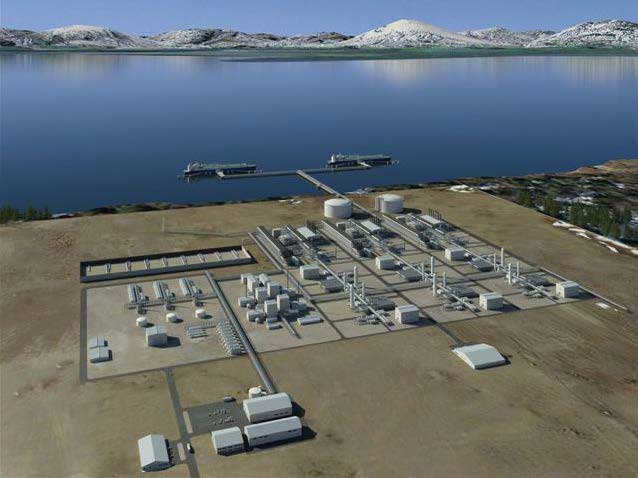FERC Grants Trans-Foreland Pipeline Extension for Alaska LNG Import Project
(Reuters) — Marathon Petroleum Corp.'s Trans-Foreland Pipeline Co. unit received more time to convert the Kenai liquefied natural gas (LNG) export plant in Alaska into an import terminal, U.S. energy regulators said on Tuesday.
The U.S. Federal Energy Regulatory Commission (FERC) approved Trans-Foreland's request for an extension to complete the project until December 2025.
FERC first approved Trans-Foreland's request to build the plant in December 2020 and gave the company until December 2022 to place it into service.
Trans-Foreland said it has yet to make a final investment decision (FID) to build the project because the COVID-19 pandemic and the war in Ukraine have worsened economic and logistical conditions.
"Uncertainty and volatility in the global LNG market have made it difficult for Trans-Foreland to secure a suitable supply arrangement that would provide the financial certainty necessary for the project," Trans-Foreland said in an earlier filing.
Trans-Foreland, however, said the project "remains commercially viable." The company said it "is actively seeking suitable supplies and monitoring LNG markets."
Once Trans-Foreland makes commercial arrangements for suitable supply, the company said it anticipates making its FID and moving forward with the project.
Trans-Foreland has said the facility would import up to four tanker loads of LNG per year and use its boil-off gas management system to deliver imported gas to the adjacent Kenai refinery.
The Kenai LNG export plant entered service in 1969. It has not exported LNG since 2015.
The plant was the only big LNG export facility in North America until Cheniere Energy Inc.'s Sabine Pass export terminal in Louisiana entered service in February 2016. Nearly all of the LNG from Kenai went to Japan.
Related News
Related News

- Kinder Morgan Proposes 290-Mile Gas Pipeline Expansion Spanning Three States
- Enbridge Plans 86-Mile Pipeline Expansion, Bringing 850 Workers to Northern B.C.
- Intensity, Rainbow Energy to Build 344-Mile Gas Pipeline Across North Dakota
- Tallgrass to Build New Permian-to-Rockies Pipeline, Targets 2028 Startup with 2.4 Bcf Capacity
- U.S. Moves to Block Enterprise Products’ Exports to China Over Security Risk
- U.S. Pipeline Expansion to Add 99 Bcf/d, Mostly for LNG Export, Report Finds
- A Systematic Approach To Ensuring Pipeline Integrity
- US Poised to Become Net Exporter of Crude Oil in 2023
- EIG’s MidOcean Energy Acquires 20% Stake in Peru LNG, Including 254-Mile Pipeline
- Enbridge Sells $511 Million Stake in Westcoast Pipeline to Indigenous Alliance





Comments